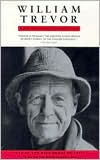This is one mark the passing of the Modern Ages, which were ages of representation in the arts. You can see it in painting, sculpture, writing. The goal of the Renaissance, Age of Reason, Victorian Age and all was to represent the world "als es wirklich war" (as it truly was). The words are Ranke's and refer to historiography, but look at Dürer's watercolor of a Young Hare, in which every hair [pun intended] is drawn in.
 Likewise, the novel was called "novel" because it tried to do in writing what Dürer and others were doing in painting. Hence, the appeal to all five senses, the dipping into different points of view, the vivid descriptions of the landscape and humanscape, the multitude of characters each motivated by his or her reasons. People were supposed to read a "novel" and say, "Yes, that is true to life." I've been there; I've known people like that.
Likewise, the novel was called "novel" because it tried to do in writing what Dürer and others were doing in painting. Hence, the appeal to all five senses, the dipping into different points of view, the vivid descriptions of the landscape and humanscape, the multitude of characters each motivated by his or her reasons. People were supposed to read a "novel" and say, "Yes, that is true to life." I've been there; I've known people like that. It was part and parcel of the Scientific Age, in which all truth was objective and experienced from without. The Renaissance, or Enlightened, or Victorian reader did not "identify" with any of the characters, but rather "observed" them objectively.

The Post-Modern Ages, which began about a hundred years ago, or even earlier in the arts, began to replace objectivity and description with subjectivity and impression. So, impressionism, and the mis-named "modern" art. Nude Descending a Staircase is not a painting of a nude or a stairecase, which would be objective; but it is a painting of "descent," a subjective impression.
As visual arts became sketchier and more impressionistic, the written arts became interior and minimalist. One rarely sees the universal, omniscient narrator any more; one expects to ride the "novel" inside one of the character's heads. One we can "identify" with. Perhaps more than one character; but if you populate your book like Tolstoy or Dickens, the post-modern reader will complain that his head hurts and he can't keep the characters straight.
A reader of one of my own stories once complained that I wasted too much time on character development. He only wanted to know "what happened." Content, not packaging. He had not learned his Aristotle: the matter and the form are inseparable. But he did reflect the post-modern movement toward minimalism. We want to read as few words (and as short and simple) as we can. And we can dispense with all those details and cut to the chase, the "bottom line." What we call "novels" today are simply "really long stories." We never did dare to describe every hair on the rabbit. For art, a glance takes in it all; but the written word must be read linearly. There was no Dürer in literature.
 My reader did buck the trend in one way: the post-modern delights in form at the expense of content. You can see this especially in the movies, where people outrun explosions and strike iconic poses, sometimes in slo-mo. But the same thing can be found in the written word to a lesser extent. Consider Farmer's "Riders of the Purple Wage" or Ellison's "I Have No Mouth and I Must Scream." There, the writing,
My reader did buck the trend in one way: the post-modern delights in form at the expense of content. You can see this especially in the movies, where people outrun explosions and strike iconic poses, sometimes in slo-mo. But the same thing can be found in the written word to a lesser extent. Consider Farmer's "Riders of the Purple Wage" or Ellison's "I Have No Mouth and I Must Scream." There, the writing, the style, the way a thing is said outweighs what is being said. Not that nothing is being said or that it is unworthy of being said, but there is more emphasis on style than plot, and the narrative description is restricted to that which serves a purpose in the character development or in the story line.(*) Some stories -- and by no means poor stories! -- are little more than character sketches. Read William Trevor's "The General's Day", or "The Ballroom of Romance."
the style, the way a thing is said outweighs what is being said. Not that nothing is being said or that it is unworthy of being said, but there is more emphasis on style than plot, and the narrative description is restricted to that which serves a purpose in the character development or in the story line.(*) Some stories -- and by no means poor stories! -- are little more than character sketches. Read William Trevor's "The General's Day", or "The Ballroom of Romance." Now writing, by its nature will always be more logical than iconic. It uses words (logos) not images (ikon). And science fiction, with its right foot planted firmly in the "scientific programme" of the self-described Age of Reason, will always seem even more "retro." But nowadays, we see more fantasy than science fiction; we watch more movies than we read books. So-called "graphic novels" eventually appeared.
None of this is necessarily bad, which is a difficult thing for Moderns, still in thrall to the Enlightenment Thing, to realize. Nor is it necessarily good, a difficult thing for rebellious Young Turks to realize. The new age is neither a good thing nor a bad thing. It is only a thing. I will miss the novel; I will miss science fiction - although I expect both to last my lifetime - but I also like a good fantasy and the new medium of interactive games may provide a wonderfully unexplored mindscape for the writer. (If they can get away from hackneyed stereotypes and point-and-shoot action.)


Post-which-modern? As far as I can tell, modernism has gone through several phases: the modernism of Descartes, the modernism of Jefferson, the modernism of Marx, and more recent modernisms ...
ReplyDeleteI once got into a argument with a "post-modernist" on Usenet whose ideas were clearly early 20th century (it's no longer trendy to claim that quantum mechanics supports subjectivism).
All of the above. The Age of the Book and the Age of Representation runs through all the Modern Ages, just as there were common themes that ran through all the Middle Ages, despite some important distinctions from one age to the next. Industrialism was more important in the High Modern Ages than earlier, which was more Industrious than Industrial. In some ways the Renaissance was still a bit medieval; in other ways defiantly modern.
ReplyDelete